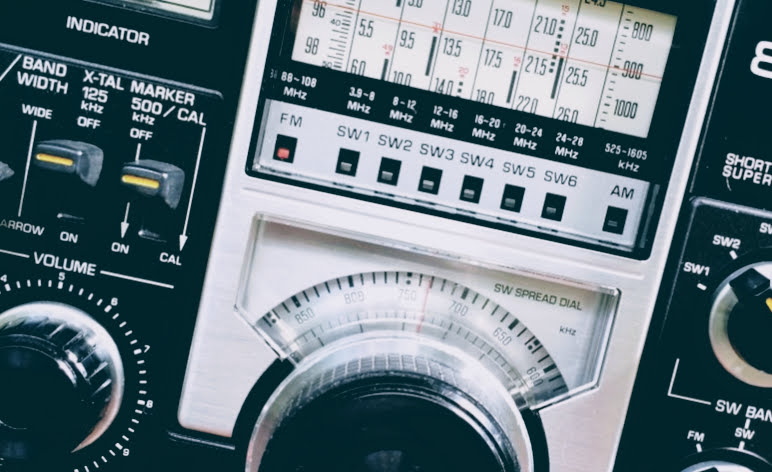 Radio Waves: Stories Making Waves in the World of Radio
Radio Waves: Stories Making Waves in the World of Radio
Welcome to the SWLing Post’s Radio Waves, a collection of links to interesting stories making waves in the world of radio. Enjoy!
Many thanks to SWLing Post contributors Andrea Borgnino, Paul, and Dennis Dura for the following tips:
BBC World Service announces Emergency Radio Service for Gaza (BBC Media Centre)
It will provide listeners in Gaza with the latest information and developments as well as safety advice on where to access shelter, food and water supplies
BBC News Arabic has today (1 November) announced an Emergency Radio Service for Gaza in response to the conflict in the region.
The emergency service – Gaza Daily – will broadcast vital news daily to the people of Gaza during this time of urgent need.
It will provide listeners in Gaza with the latest information and developments as well as safety advice on where to access shelter, food and water supplies.
Produced in Cairo and London and broadcast on medium wave, the service will initially run one programme a day at 1500 GMT from Friday 3 November. A second daily update will be broadcast at 0500 GMT from Friday 10 November.
The BBC World Service has a history of responding to emergency situations globally. Most recently, in May 2023 during the conflict in Sudan BBC News Arabic began an emergency radio service. In February 2022, the BBC News Ukraine service began extended TV bulletins following the invasion of the country. The BBC also previously launched a service for Gaza in 2014 following a summer of conflict.
Liliane Landor, Director, BBC World Service, says: “BBC News Arabic are extremely well-placed to offer this vital service for the people of Gaza at a time of greatest need. Their expertise and specialist knowledge of the region alongside the BBC’s reputation as the most trusted news provider, means we can reach civilians in Gaza with the information they need.”
RM3
Notes to editors: The Gaza service will be broadcast on MW 639kHz for morning and evening episodes.
FCC Wants to Bolster Amateur Radio (Radio World)
Commission will vote in November on plan to remove outdated technical restrictions
FCC Chairwoman Jessica Rosenworcel says the FCC plans to “incentivize innovation and experimentation in the amateur radio bands” by getting rid of outdated restrictions and providing licensees with the flexibility to use modern digital emissions.
The commission at its November meeting is expected to take action on a Report and Order that would eliminate the baud rate limitation and establish a bandwidth limitation in the amateur radio bands below 29.7 MHz.
The order being circulated for tentative consideration by the commission would remove the baud rate limitation — the rate at which the carrier waveform amplitude, frequency and/or phase is varied to transmit information — for data emissions in the amateur radio bands, the FCC says. The current baud rate limits were adopted in 1980.
The order would implement a 2.8 kilohertz bandwidth limitation in place of the baud rate in amateur radio bands. The 2.8 kHz limitation is consistent with the commission’s treatment of other wireless radio services, the FCC says.
The current rules limit the baud rate for high-frequency amateur radioteletype/data transmissions to 300 baud for frequencies below 28 MHz (except in the 60-meter band), and 1200 baud in the 10 meter (28-29.7 MHZ) band. [Continue reading…]
Ham Radios Crowdsourced Ionospheric Science During Eclipse (EOS.org)
Amateur radio operators who study space physics and the upper atmosphere probed the ionosphere’s response to the 2023 annular solar eclipse using shortwave transmissions.
On 14 October, millions of people in North, Central, and South America peered through safety glasses and other viewing aids at the partially obscured Sun. Simultaneously, thousands of folks experienced the annular solar eclipse in a different way: through transmissions sent and received over amateur radios.
Before, during, and after the eclipse, ham radio operators pinged signals off the ionosphere and connected to people hundreds or thousands of kilometers away. The experiment, part of the Ham Radio Science Citizen Investigation (HamSCI), is gathering hundreds of thousands of those contacts to investigate how the ionosphere responds to the temporary loss of sunlight during an eclipse. [Continue reading…]
Do you enjoy the SWLing Post?
Please consider supporting us via Patreon or our Coffee Fund!
Your support makes articles like this one possible. Thank you!

